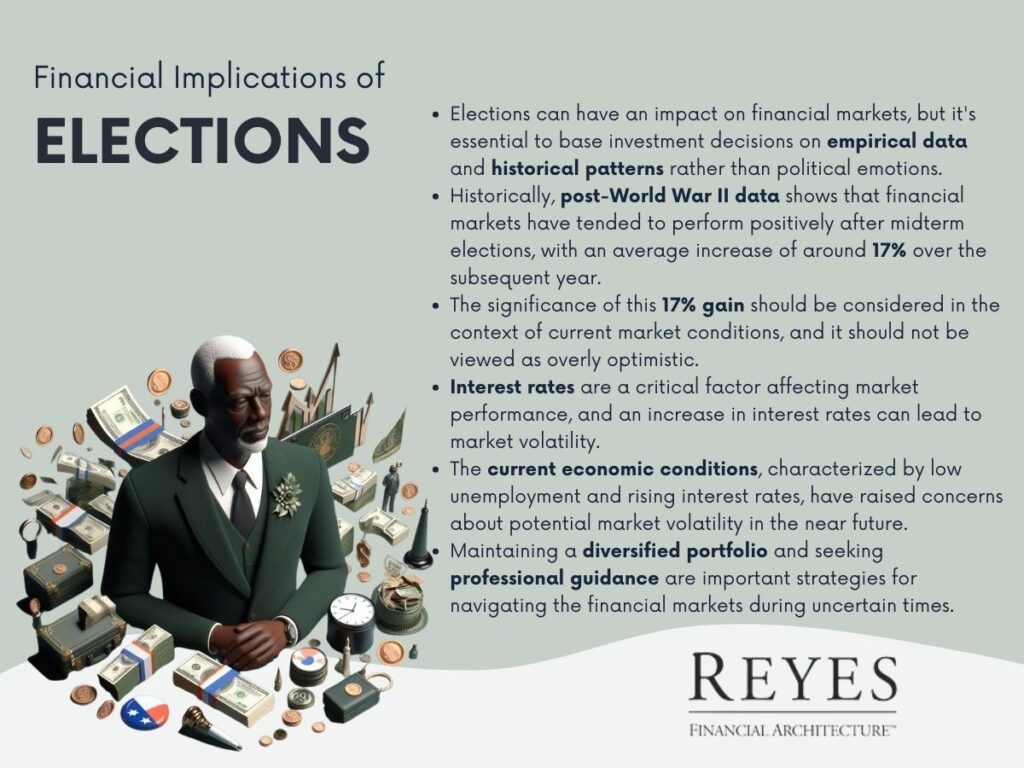In an ever-changing political landscape, understanding how elections can affect your finances is a topic of significant interest and concern for many. Recently, an expert shared insights on this subject, shedding light on the impact of elections on financial markets. In this article, we will delve into the analysis of recent elections and their potential effects on your financial well-being.

The discussion around elections and financial impact underscores the intricate relationship between politics and economics. It is crucial to separate political emotions from investment decisions and focus on empirical data and historical patterns.
An intriguing historical trend has emerged from post-World War II data. In all 18 midterm elections that occurred during this period, the financial markets showed an average increase of approximately 17% over the subsequent year. This consistent pattern suggests that, irrespective of the political climate, financial markets have tended to perform positively after midterm elections.
To comprehend the significance of this 17% gain, it is essential to consider the current market situation. At the beginning of the year, the market was up by about 10%, but it experienced a correction in October, resulting in a net gain of around 2%. If the market were to return to its January levels, it would constitute an 8% increase. Based on historical data, this could potentially be followed by an additional 9% increase, culminating in a theoretical total return of approximately 9% over the next year.
While historical trends offer an optimistic outlook, it is vital to exercise caution. The average annual market return over the past decade has been approximately 15%. Therefore, the potential 9% return, though positive, should not be viewed as overly optimistic. Nevertheless, stocks continue to be a valuable asset class for intermediate-term investments.
Another critical factor affecting market performance is interest rates. A comparison was drawn between the current economic conditions and those preceding the 2007 recession. In both scenarios, unemployment was at low levels (3.7% currently, 5% in 2007), and interest rates were relatively high (around 5.25% in 2007). Despite the appearance of economic stability, the market experienced a significant decline within a year, accompanied by a substantial reduction in interest rates.
In the present day, similar conditions prevail, with a robust economy and the Federal Reserve actively increasing interest rates. Three rate hikes have already been implemented this year, with the expectation of another increase in December. This situation has raised concerns about potential market volatility in the near future.
In conclusion, this analysis underscores the importance of historical trends and economic indicators when assessing the impact of elections on financial markets. While history suggests a positive trend in market performance following midterm elections, other factors, such as interest rates and market volatility, must be considered. It remains crucial to maintain a diversified portfolio and seek professional guidance when navigating the intricate world of finance during uncertain times.